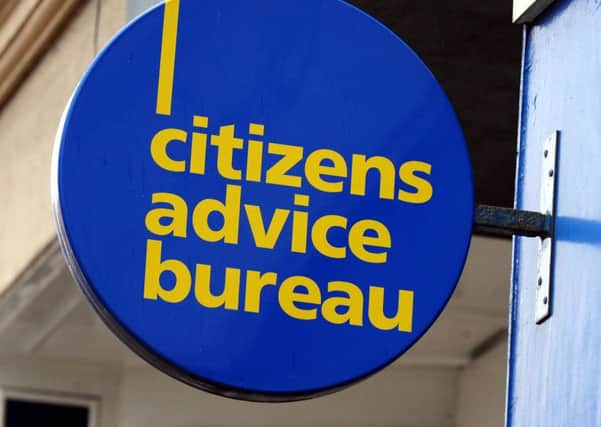Gillian Guy: Consumers feel like they're the ones being used


Our new research shows these problems can have serious effects on the rest of people’s lives. Three million people experience a severe financial impact as a result of a consumer problem and 2.2 million suffer damage to their home or property.
At Citizens Advice, we see the human side of these statistics. Stories like that of the elderly lady left distraught by a company that failed to install the stairlift she paid for, or the mum forced to borrow money to buy her children’s Christmas presents after being sold a faulty second-hand car. Consumer problems aren’t just a nuisance – in extreme cases they can ruin lives.
Advertisement
Hide AdAdvertisement
Hide AdWhat these problems highlight is that our protections as consumers aren’t fit for purpose: the odds are stacked against us. When things go wrong, rogue companies are too often let off the hook for the costs they put on people – dragging their feet when complaints are made, putting in place confusing complaints processes. Or they simply bet that people won’t have the time or money to take them to court. And this means that only a third of people have their problem resolved to their satisfaction – the rest either struggle or give up.
This is bad for consumers. Without clear, easy ways to fix their problems, people bear the costs of companies’ failure themselves, whether that’s through worsening financial situations or disruption to their work and lives. But it’s also bad for all of us, whether or not we’ve experienced a problem, because when companies can push costs on to consumers like this, it reduces the need for them to innovate and improve. A thriving economy is one where companies compete to offer people the best products at the lowest price. The scale of consumer problems suggests this just isn’t happening.
The good news is that these problems can be fixed. The first thing the Government can do is make it much easier for consumers to resolve these problems themselves, rather than rely on unresponsive companies with complex and opaque complaints procedures. At the moment, the situation is messy – where to go to fix a problem varies hugely depending on what you’re buying and what problem you have.
Part of the solution is making sure that people can go to independent, impartial referees who are authorised by both sides to try to come to a fair deal. This exists in some markets, like energy and water, where things going wrong can be particularly catastrophic. But it’s completely voluntary in other markets where we see a lot of problems, like construction and second-hand car sales, and therefore lots of companies just don’t do it. The Government could take a big step towards resolving consumer problems by extending this requirement to all products and services.
Advertisement
Hide AdAdvertisement
Hide AdThe second thing the Government could do is recognise that many of us don’t have the time or energy to engage with complex processes when we are eligible for recompense or refunds. The Government should put the responsibility on providers, particularly in essential markets, to compensate consumers when things go wrong. Wherever possible, this should happen automatically, as we increasingly see in water and energy markets.
These two solutions will help a lot of people to solve their problems on their own. But some of these problems happen because of underlying issues with markets – where businesses have the power to rig the rules of the game against consumers. After all, there’s no shortage of business lobbyists trying to influence the Government on this or that issue.
But it becomes more of a problem when those are the only voices they hear from. The voice of consumers – who markets ultimately exist to serve – is often not heard. Consumers need champions – strong, joined up representation – that can act as a counterbalance to make sure that the rules of the game don’t get too bent towards business.
In some markets, like energy or post, consumers have a statutory advocate fighting their corner. But in others, like broadband or mobile, essential services where our data suggests massive harm is done to people, consumers have no voice at all. The Government should make sure consumers’ voices are heard loud and clear in all the markets where detriment is high and the services are essential.
Advertisement
Hide AdAdvertisement
Hide AdTaken together, these reforms would make a huge dent in the knock-on effects we’ve identified. It’s time for the Government to take consumers seriously.
Gillian Guy is chief executive of Citizens Advice.